 Years ago, I spent a great deal of time with my grands that live in Utah. We lived one block away. This was before we consolidated our two families into a three-generation home. My daughter, Jodie, was homeschooling. At that time, I was teaching and mentoring mothers who homeschooled. Then I made a transition. I realized that many of the excellent things I was teaching applied to a whole spectrum of parenting, not just those who homeschooled.
Years ago, I spent a great deal of time with my grands that live in Utah. We lived one block away. This was before we consolidated our two families into a three-generation home. My daughter, Jodie, was homeschooling. At that time, I was teaching and mentoring mothers who homeschooled. Then I made a transition. I realized that many of the excellent things I was teaching applied to a whole spectrum of parenting, not just those who homeschooled.
Over the ensuing years, I have shared many of the lessons I taught to those long ago homeschool moms and have demonstrated how they apply to every family.
One of those lessons was the idea of Sparks. I wrote my first article on this cool subject in April of 2010. Wow, that was a long time ago. I love the idea of Sparks and have written many articles on the subject since then. In that early article, Sparks Bring Learning to Life. I explained what a Spark is and how it can help you, as a parent, help your child love the idea of learning. This is certainly valuable if you homeschool, but equally valuable if your children attend public or private school. Life is about learning, and the best-lived lives happen when we continue to learn. It is helpful when we show our children how fun learning can be and that is done best when we respond to their Sparks, the things they are already interested in.
In my book Becoming a Present Parent I wrote that the value of seeing your child’s Sparks is that it’s a wonderful way to get Present with your child. It’s powerful not only in helping them love learning but also in creating tighter relationships. So, what is a Spark? Simply put, a Spark is anything that a child says or does that lets you know they’re interested in something right now. The article mentioned above will teach you how to recognize a Spark and then how to use it to create fun, family-learning moments, and to solidify your parent-child relationship.
Over the next few months, I want to share some examples of how I, and other parents, were able to use Sparks to connect with our kids. They are fun ideas that you can incorporate with your children, even if they haven’t shown up as a Spark, because you can also ignite Sparks. Light a spark and watch it burn!
Besides, it’s nice to have a quiver of ideas in your back pocket, especially with summer right around the corner and the sometimes boring days it brings. Learning slows down and tech takes over. It is useful to have some fun ideas and then gather your kids around for some non-tech enjoyment. We are talking about kids under twelve, but occasionally teens will hang around and even join in.
One of the reasons I’m going to tackle this issue of Sparks in the next couple of months is because I’m going to be spending LOTS of time caring for my grands. I fly to Seattle for a week, mid-month, where my grands range in age from almost twelve to four. Then it’s on to Colorado for a week. These grands range in age from married with kids, down to age four. I need a reminder, because as I see Sparks, I can respond, and our time together will be more powerful.
The article I am sharing this week was written in late 2011 and is about an epic failure in the Sparks arena. It illustrates the number one thing to remember about Sparks – the younger the child the shorter the Sparks shelf life. So when a Spark pops up you need to be prepared to respond. When you do, the results are amazing. Next week I will share a success.
Oh yes, one other thing. When children know you care about what they care about, regardless of the age of the child, they will open up because they know you care and will respond. This goes a long way in the relationship department, especially with teens.
CHILDREN LEARN BEST WHEN INTEREST IS HIGH
I go to the library once a month and get four weeks worth of material to share with my grands. On my last trip to the library, I got books about pre-math subjects. That’s where my focus was. However, Jack’s was on elephants.
Each week I visit my grands with my recognizable plastic bucket filled with interesting items. Two weeks earlier, when the bucket went visiting Jack said, “Hi grandma, you brought the bucket. I asked him if he knew what we were going to do that day and he got a huge grin on his face and said, “Yes, elephants.” I pulled out the contents and we had a fun afternoon, but no elephants were included.
The next week when I arrived, I asked Jack, “What do you think we are going to learn about today.” With a huge grin and a face that was lit with the sure knowledge that he knew, he yelled, “Elephants”. I knew right then that it should have been elephants. I had missed my opportunity to respond when the Spark was fresh.
When Jack said he wanted to learn about elephants he fully expected that he would find the materials available the next week. I could see his disappointment when it was something else. We had fun but I sensed he wasn’t fully enthusiastic because what he wanted to know about was elephants.
This last week I was prepared with information about elephants. Guess what – I had let the window of opportunity pass by! We did have fun, but I could see that the enthusiasm he had had two weeks earlier was not present. Imagine how joyous would have been our experience if I had materials about elephants the week before. It would have made a difference.
I am going to spill it and tell you why I didn’t have things going well when it came to elephants. Frankly, the first week I missed it. I heard him say elephants and I let it pass right through my head. I didn’t want to go to the library again, I wanted to use what I already had prepared, and I was excited about the pre-math stuff. Then I forgot about elephants until the next week when Jack’s happy, anticipation-filled face reminded me. I had been thinking about my needs and not Jack, so I had completely missed the Spark.
When I did show up with elephants in the basket on the third week it was fun, but Jack wasn’t as engaged as he sometimes is, and we didn’t do half of what I had prepared. The younger the child, the more important it is to hear and respond to a spark quickly. They move from one interest to another fast.
Tips to help you respond to your child’s Sparks
- Have a consistent place to make notes to yourself. When Jack mentioned elephants, I should have written it down or noted it in my phone, so I wouldn’t forget. If the Spark requires a trip to the museum etc., you need help to remember because it will require planning. Although we should respond to a Spark as soon as we can, occasionally time will pass so have a way to remind yourself.
- If you can’t make it to the library for books, then use the internet. It will only take 10 minutes max to print off a page of info. that you can read and prepare in your mind, as well as a few pictures. You can also all gather at the computer. Then while you share the pictures you can ask questions and slip in some facts. There are always craft ideas and cute lunch and snack ideas online for just about any subject. There are free worksheets and color pages online for any topic you can think of, including elephants. Add another 5 minutes and you can have those downloaded and printed.
- Take another 10-15 minutes to gather your materials for crafts and plan snacks so that you can introduce something fun over the next few days. I always use what I have. I rarely make a special trip to the store. I am averse to buying when I can make do. So, if I need a straw and I don’t have one I call my husband and he stops at Wendy’s after work. If I need a feather and I don’t have one, I make one from paper. If I need sliced turkey and I don’t have it, I figure out how to make peanut butter or tuna work. In 30 min. or so, you can have wonderful ideas that work for a week or two, that help you respond to your child’s Spark. They will love that you noticed. And this works in reverse. You can use this 30 minutes on something you would like them to be interested in and they may be Sparked.
- If you have things to do and don’t we all put them on hold for 30 minutes and respond to the spark, even if it’s only a short conversation, reading a short book online, or asking them questions. Your child will be excited and much more engaged.
- Most of all, remember that seeing Sparks is about seeing your children’s interests and needs. When you begin using these strategies you create magic and children learn to love learning.
- Catching Sparks is usually easy, but responding to them is a skill we develop over time. So don’t become discouraged when you have a fail like I did with the elephants. Just keep practicing.

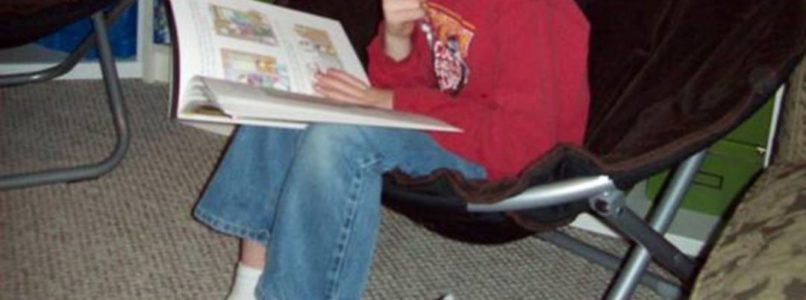

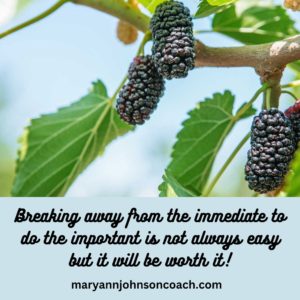
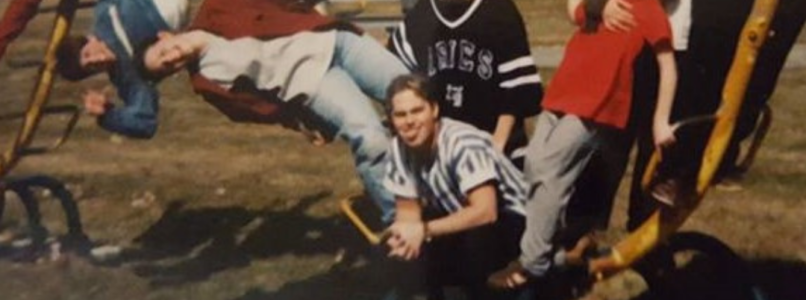
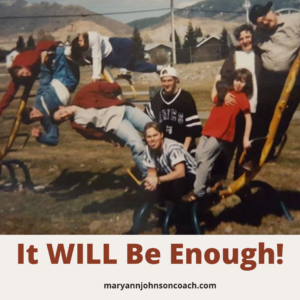 I received a gift on my Birthday
I received a gift on my Birthday 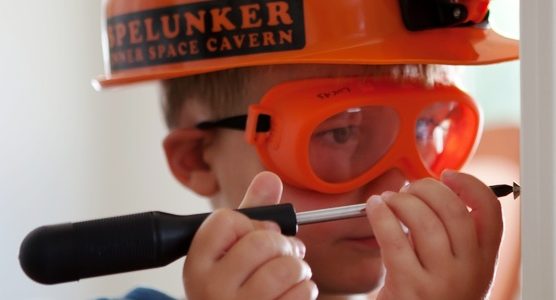
 A father was painting the outside of his home. His five-year-old son wanted to help. So this good father gave his son an old shirt with the sleeves rolled up several times. They both went to work on the door, dad painting the top and son painting the bottom. It just happened to be the main entrance.
A father was painting the outside of his home. His five-year-old son wanted to help. So this good father gave his son an old shirt with the sleeves rolled up several times. They both went to work on the door, dad painting the top and son painting the bottom. It just happened to be the main entrance.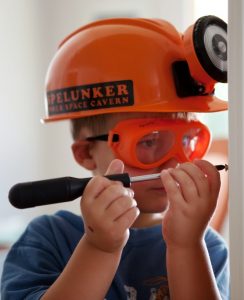 workshop in which he made wonderful things. The son said, “I would wander into this workshop and watch him. Just to be in his presence was a thrill for me. He invited me to help him by passing a hammer, a screwdriver, or some other tool. I was convinced that my help was necessary and that without me he would not be able to complete his task.
workshop in which he made wonderful things. The son said, “I would wander into this workshop and watch him. Just to be in his presence was a thrill for me. He invited me to help him by passing a hammer, a screwdriver, or some other tool. I was convinced that my help was necessary and that without me he would not be able to complete his task.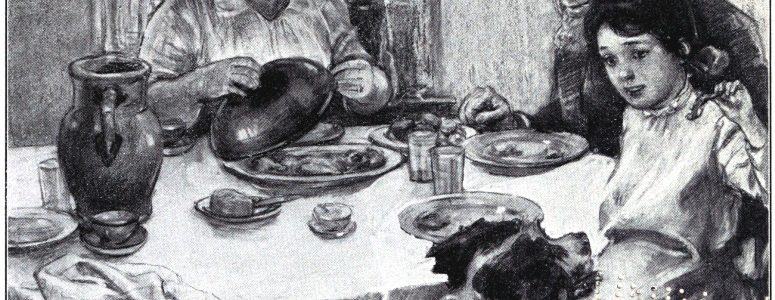
 It’s helpful to know and understand that moments of connection can happen during the daily activities we engage in already. It needn’t be out of the ordinary, planned ahead or take extra time.
It’s helpful to know and understand that moments of connection can happen during the daily activities we engage in already. It needn’t be out of the ordinary, planned ahead or take extra time.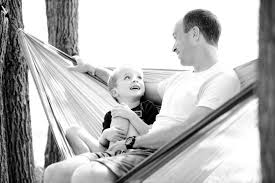 connect with his children consistently but hadn’t known how.
connect with his children consistently but hadn’t known how. 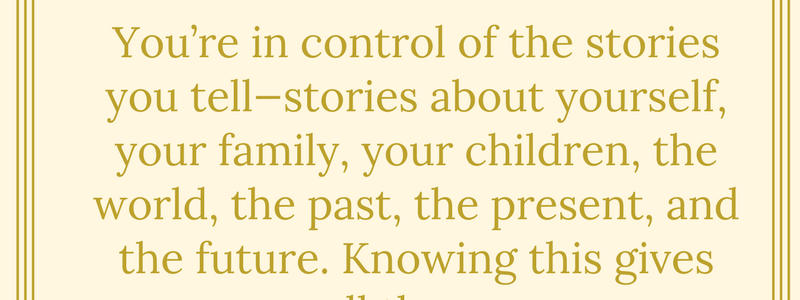
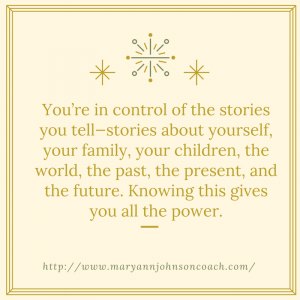 I keep thinking that I’ll switch topics from the power of controlling our story and response to another parenting topic but every day provides a new and powerful example of just what it looks like to control how we think and act.
I keep thinking that I’ll switch topics from the power of controlling our story and response to another parenting topic but every day provides a new and powerful example of just what it looks like to control how we think and act.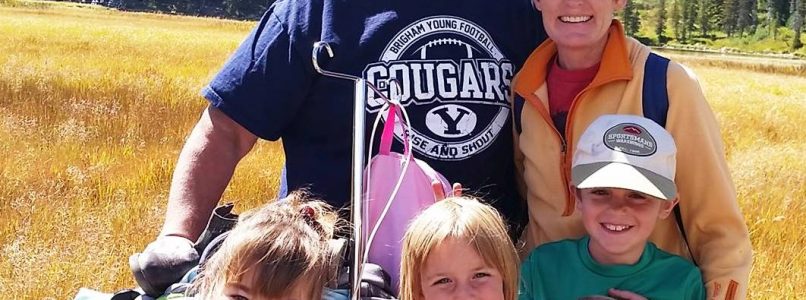
 I went to Seattle to visit my youngest daughter’s family and to participate in her husband’s graduation. When we walked in the house from the airport at 11:30 that night we had to step over toys, shoes, the day’s clothes, etc. My daughter looked at me and said, “Mom I cleaned this house twice for you.” I smiled. I know that feeling. I also know that she has two small, busy children and that she spends time with them.
I went to Seattle to visit my youngest daughter’s family and to participate in her husband’s graduation. When we walked in the house from the airport at 11:30 that night we had to step over toys, shoes, the day’s clothes, etc. My daughter looked at me and said, “Mom I cleaned this house twice for you.” I smiled. I know that feeling. I also know that she has two small, busy children and that she spends time with them.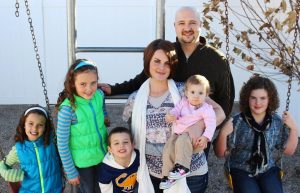 is repeated. She always asks me why I pick some major thing to clean every time I come. Well, it’s because I know what a challenge it is to stay on top of the daily things, let alone get any deep cleaning done, especially when you are willing to put it aside to help a five-year-old ride her bike or create a superhero costume for a nine-year-old son.
is repeated. She always asks me why I pick some major thing to clean every time I come. Well, it’s because I know what a challenge it is to stay on top of the daily things, let alone get any deep cleaning done, especially when you are willing to put it aside to help a five-year-old ride her bike or create a superhero costume for a nine-year-old son. I live with my oldest daughter and her family, in an attached apartment. So I see what goes on there even more intimately. It is almost always slightly chaotic. The floor is rarely uncluttered for more than a few hours at a time. But I see her stop what she is doing to help any one of her four children with whatever project or need they may have. In fact, I have thought to myself, “Man, I would have told them I would help them later.” You see, I still have to work on being Present!
I live with my oldest daughter and her family, in an attached apartment. So I see what goes on there even more intimately. It is almost always slightly chaotic. The floor is rarely uncluttered for more than a few hours at a time. But I see her stop what she is doing to help any one of her four children with whatever project or need they may have. In fact, I have thought to myself, “Man, I would have told them I would help them later.” You see, I still have to work on being Present!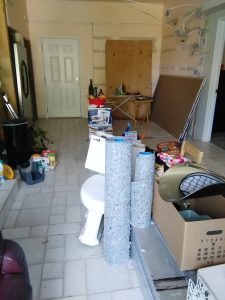
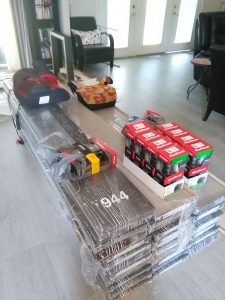
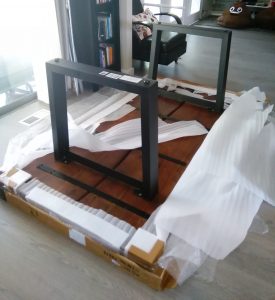

 I had a friend ask me a very interesting question the other day. “Did you write your book because you had troubles in your own family?” That was a fair question but the answer was NO. That isn’t why I wrote it.
I had a friend ask me a very interesting question the other day. “Did you write your book because you had troubles in your own family?” That was a fair question but the answer was NO. That isn’t why I wrote it.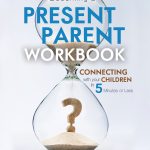
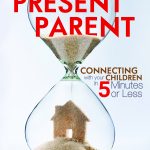 I received so many emails from people who had attended classes, workshops, webinars, and presentations saying that this information was life changing for them. I knew there had to be a way to broaden the audience and touch more families. That is how
I received so many emails from people who had attended classes, workshops, webinars, and presentations saying that this information was life changing for them. I knew there had to be a way to broaden the audience and touch more families. That is how  “Being a single woman, without children, I wasn’t sure what value this book would have for me. It impacted me greatly! I have set a goal to re-read it every few years. It’s not just a book about being a Present parent. It’s a book about being a Present person. Jenny Johnson, M.A., CCC-SLP
“Being a single woman, without children, I wasn’t sure what value this book would have for me. It impacted me greatly! I have set a goal to re-read it every few years. It’s not just a book about being a Present parent. It’s a book about being a Present person. Jenny Johnson, M.A., CCC-SLP just with children, but with all relationships. I have enjoyed it profoundly… Jason Hewlett, Dad and Speaker
just with children, but with all relationships. I have enjoyed it profoundly… Jason Hewlett, Dad and Speaker  I’m not much of a reader. Unless a book catches my attention within the first few pages, I seldom read it all the way through. This book not only drew me in from the beginning but I finally had to make myself stop reading and go to bed. “Becoming a Present Parent” will be one of those life-changing books for parents and for anyone who wants to have an amazing relationship with child. Well worth the read. Cindy Winward, Mother of four grown children and mentor at Midwives College of Utah
I’m not much of a reader. Unless a book catches my attention within the first few pages, I seldom read it all the way through. This book not only drew me in from the beginning but I finally had to make myself stop reading and go to bed. “Becoming a Present Parent” will be one of those life-changing books for parents and for anyone who wants to have an amazing relationship with child. Well worth the read. Cindy Winward, Mother of four grown children and mentor at Midwives College of Utah insight and real-life steps in helping you stay “checked in” with your children, a difficult thing in this distracting world. I love how Mary Ann teaches us how to truly connect with our children. Ann Webb, Humanitarian, Author and Founder of Ideal LifeVision
insight and real-life steps in helping you stay “checked in” with your children, a difficult thing in this distracting world. I love how Mary Ann teaches us how to truly connect with our children. Ann Webb, Humanitarian, Author and Founder of Ideal LifeVision You may read Becoming a Present Parent all the way through one time. But then you’ll come back to it time and again to refresh on certain topics at the very time you need them. My guess is your copy will become dog-eared and marked up, and will become like a comfortable friend. Norma Jean Lutz, Author, Speaker, Editor, Novel Critique Consultant, Ghostwriter
You may read Becoming a Present Parent all the way through one time. But then you’ll come back to it time and again to refresh on certain topics at the very time you need them. My guess is your copy will become dog-eared and marked up, and will become like a comfortable friend. Norma Jean Lutz, Author, Speaker, Editor, Novel Critique Consultant, Ghostwriter